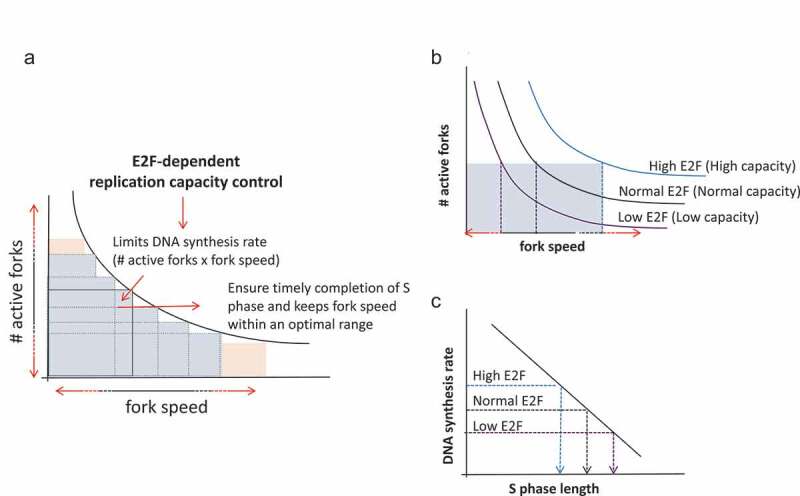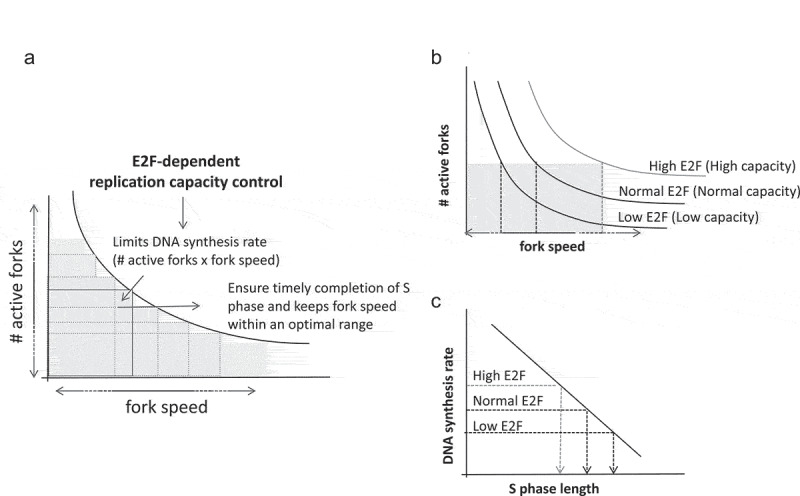S 期持续时间的控制:以 E2F 转录为核心的复制能力模型
IF 2.6
Q3 ONCOLOGY
引用次数: 0
摘要
DNA 复制能力是指细胞在 S 期任何给定时间内可合成的最大 DNA 量,它受 E2F 依赖性转录的控制。复制能力的控制限制了复制速度,并提供了一种稳健的机制,将复制叉速度保持在最佳范围内,同时确保及时完成基因组复制。本文章由计算机程序翻译,如有差异,请以英文原文为准。


Control of S phase duration: a replication capacity model with E2F transcription at its heart.
DNA replication capacity, the maximal amount of DNA a cell can synthesize at any given time during S phase, is controlled by E2F-dependent transcription. Controlling replication capacity limits the replication rate and provides a robust mechanism to keep replication fork speed within an optimal range whilst ensuring timely completion of genome duplication.
求助全文
通过发布文献求助,成功后即可免费获取论文全文。
去求助
来源期刊

Molecular and Cellular Oncology
Biochemistry, Genetics and Molecular Biology-Cancer Research
CiteScore
3.20
自引率
0.00%
发文量
18
期刊介绍:
For a long time, solid neoplasms have been viewed as relatively homogeneous entities composed for the most part of malignant cells. It is now clear that tumors are highly heterogeneous structures that evolve in the context of intimate interactions between cancer cells and endothelial, stromal as well as immune cells. During the past few years, experimental and clinical oncologists have witnessed several conceptual transitions of this type. Molecular and Cellular Oncology (MCO) emerges within this conceptual framework as a high-profile forum for the publication of fundamental, translational and clinical research on cancer. The scope of MCO is broad. Submissions dealing with all aspects of oncogenesis, tumor progression and response to therapy will be welcome, irrespective of whether they focus on solid or hematological neoplasms. MCO has gathered leading scientists with expertise in multiple areas of cancer research and other fields of investigation to constitute a large, interdisciplinary, Editorial Board that will ensure the quality of articles accepted for publication. MCO will publish Original Research Articles, Brief Reports, Reviews, Short Reviews, Commentaries, Author Views (auto-commentaries) and Meeting Reports dealing with all aspects of cancer research.
 求助内容:
求助内容: 应助结果提醒方式:
应助结果提醒方式:


